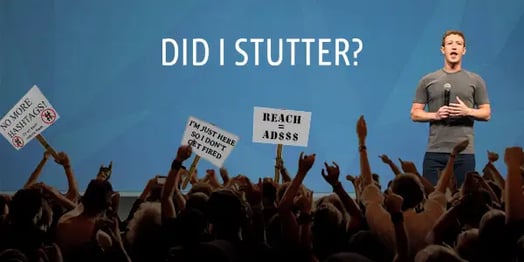Last week, Mark Zuckerberg announced a major revamp of Facebook’s News Feed algorithm to prioritize content shared by friends and family, and demote branded posts from publishers and businesses.

It seems that after pushing Facebook as a source of trending news, Dr. Zuckenstein is horrified by his own creation. And, after a year of trying unsuccessfully to police false and click-baity news, he’s given up on trying to control his monster — now, he’s killing it off.
Here’s how it affects the 3 major parties involved: publishers, Facebook, and its 2B+ users.
FB-based publishers are screwed
Publishers like Elite Daily, LAD Bible, and the approximately one jillion meme pages that rely on promoted Facebook posts to drive site traffic, will likely see a huge decrease in audience reach.
That said, most established, “premium” publishers are more balanced in their sources of web traffic, and have been quick to highlight that Facebook doesn’t owe anything to publishers who chose to hinge their entire business on a third party platform.
In the words of Axios CEO Jim VandeHei, “Facebook is a public company that controls its own decisions… Publishers should do the same d*mn thing.” *Snaps*
Facebook’s market cap took a $25B hit
In their decision to commit to “bringing people closer together,” Facebook is effectively choosing to slow their own growth for the sake of society (and their brand reputation).
Theoretically, the change means they’ll make less money off publishers and advertisers (their stock dropped 5% following the news).
In Zuck’s own words, it could also mean that people may spend less time on Facebook.
You’re gonna see a lot more of Aunt Sally’s DIY craft posts
Remember the simpler days of Facebook? You know, back when people posted innocent statuses about things they were doing like, “going to see How To Train Your Dragon! I love movie popcorn!”
Well, we can’t turn back the clock, but we will start seeing more posts from friends in our feed. With a caveat: highly shared and liked articles will still rise to the top. So the “tag a friend who needs this!” articles could still prosper.
